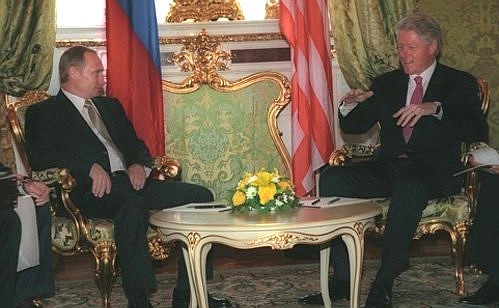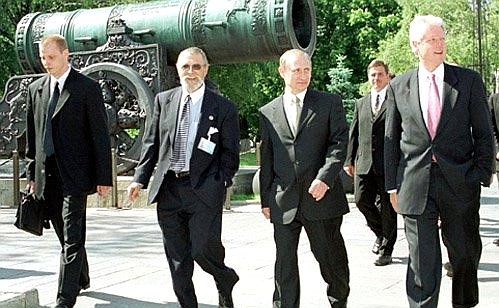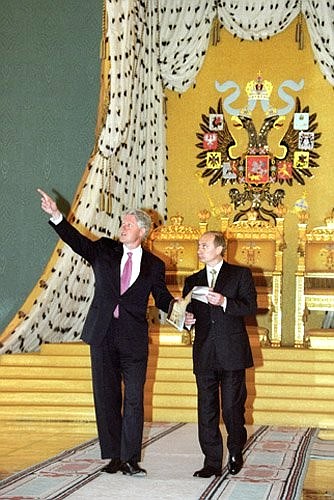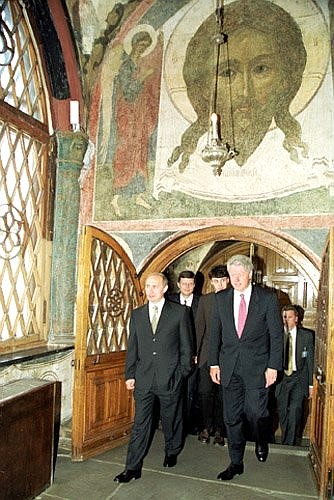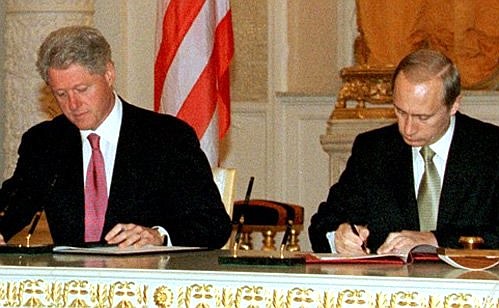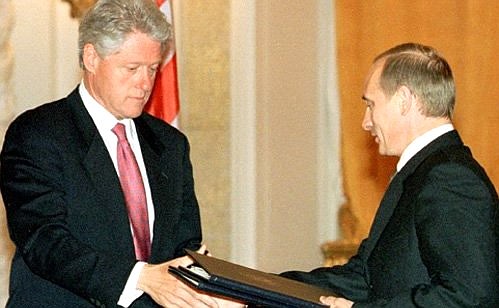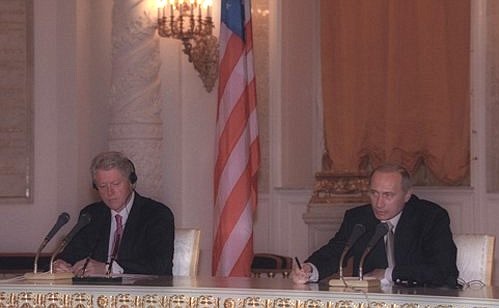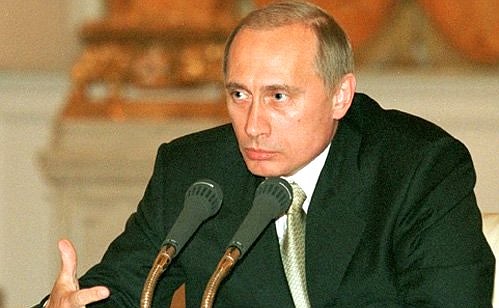The expanded talks began after a conversation between Mr Putin and Mr Clinton, which was attended by their aides, Sergei Prikhodko, Deputy Chief of Staff of the Presidential Executive Office, and Deputy Secretary of State Strobe Talbott.
The Russian side was represented at the talks by Chief of Staff of the Presidential Executive Office Alexander Voloshin and his deputy Sergei Prikhodko, Foreign Minister Igor Ivanov and his deputy Georgy Mamedov, Secretary of the Security Council Sergei Ivanov and his first deputy Mikhail Fradkov, and Yury Ushakov, Russia’s Ambassador to the United States.
After going for a walk in the Kremlin, the presidents started the second part of their talks, dedicated to economic issues.
Prime Minister Mikhail Kasyanov, Deputy Prime Minister and Finance Minister Alexei Kudrin and Economic Development and Trade Minister German Gref joined the Russian delegation.
After the talks, Mr Putin and Mr Clinton signed several joint agreements on principles of strategic stability, weapons-grade plutonium – which was acknowledged to be unnecessary for defence purposes – its disposal and bilateral collaboration in this field, as well as cooperation in the fight against global warming.
The two leaders also signed a memorandum on setting up a joint centre to exchange information on missile launches detected by early warning systems.
Speaking at a joint news conference on the results of the meeting, Mr Putin said he was satisfied with the talks held with the US delegation. He said that they had discussed not only issues concerning the two countries, but also matters related to global security and combating terrorism, organised crime and drug trafficking.
Mr Putin thanked the US delegation for their positive and businesslike approach to discussing the questions brought up during the meeting.
